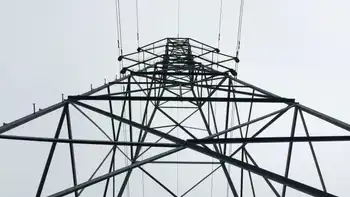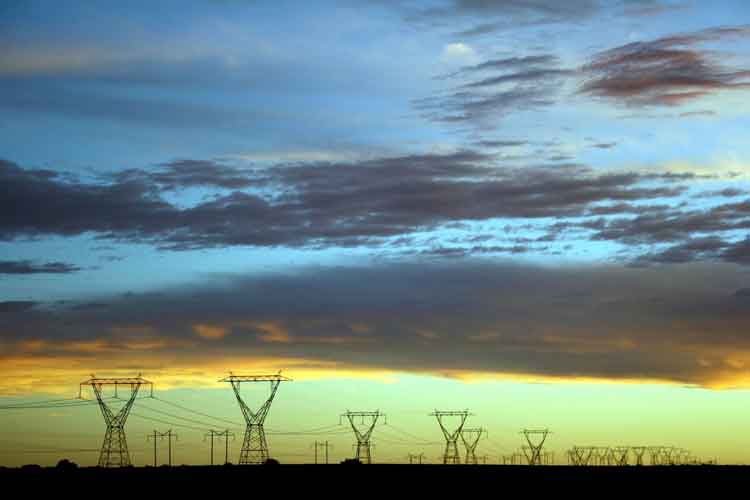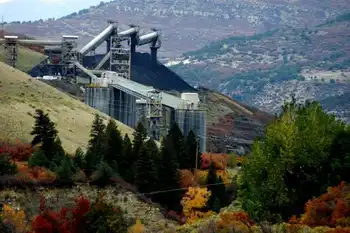Japan Power Cuts Likely to Shape Nuclear Debate
TOKYO -- - Tokyo Electric Power Co (Tepco) closed its seventeenth and final nuclear power plant on Tuesday last week for safety inspections, a step that the company said in a statement was " in efforts to restore public trust".
The reactors generate about 40 percent of the power requirements of Tokyo's metropolitan area, feeding more than 40 million households as well as important businesses and establishments that play a key role in Japan's politics and economy.
A Tepco official said that if the reactors remain closed for some time, there could be a severe crunch during peak hours, when the demand for power can hit 64.5 million kilowatts at the height of summer.
"We are working hard to get the reactors going when it is certain they are safe and after reaching an understanding with the local people," said an official at Tepco, quoting official statements.
Meantime, the maintenance shutdown of the nuclear plants is re-igniting the debate between the proponents of nuclear power and anti-nuclear activists, who have been recently gaining ground in the energy debate.
In demonstrations across the country, activists have been now urging residents to save energy so that the city does not have to rely on nuclear power.
Kazue Suzuki of Greenpeace Japan accuses Tepco of using the threat of longer power cuts to boost its business -- by creating among the public a greater reliance on this kind of power and by feeding into their fear of being inconvenienced by cuts in electricity.
"Tepco is promoting nuclear power on the basis of power cuts. This is the wrong attitude. Nuclear power can only be promoted by addressing safety," she says.
Their distrust is so that some say they even suspect that Tepco's estimate of power demand during the peak of summer may have been exaggerated to convey the image of a greater need for it.
Resource-poor, Japan has 51 nuclear plants that provide 30 percent of the country's power. Fuel and coal supply close to 70 percent, with hydroelectric and renewable energy such as solar and wind power making up less than 2 percent of the country's power supply.
The bigger issue that the Japanese are not discussing enough, however, is how they can save on energy consumption to address the issue of lesser electricity supply -- instead of turning to more nuclear power, Suzuki points out.
Indeed, activists are calling for new policies to force Japanese construction companies to set targets on power consumption in buildings, to give incentives for the use of energy-saving devices and to encourage the use of energies other than nuclear power.
Analysts say Tepco was forced to suspended operations in all plants following several accidents in its reactors and shocking revelations of cover-ups on the part of the company.
For example, in July 2000, the Japan Nuclear Safety Agency discovered that Tepco had falsified inspection reports for years, covering up its findings of cracks in core shrouds and recirculation pipe systems in its nuclear plants.
The agency also found that engineers at Tepco reported that repairs on some nuclear plants were never done.
The end result has been rising public opposition to Japan's exorbitant nuclear power programme, which costs more than 64 billion U.S. dollars.
So far, despite the closure of Tepco's nuclear reactors, Tokyo has not yet had a taste of the power cuts this month.
Tepco announced that since November 2002, it has slowly begun to reactivate seven long-unused thermal power plants outside the capital to meet the high demand it expects for electricity. These plants, though, only produce a maximum of 2.19 million kilowatts, according to the company.
Thus far, nuclear power in Japan has been promoted as being pollution-free and a cheap, indispensable source for a country that is heavily dependent on oil imports. In fact, the government aims to have nuclear power providing 40 percent of the national electricity supply, but this has been slowed by public opposition.
Tepco's plans to build a new storage facility in Aomori prefecture, northern Japan, has not received the green light although technical feasibility studies were conducted in the city of Mutsu there, three years ago.
Utility companies have also postponed the construction of 19 new nuclear reactors by 2010 due to public opposition and lack of financial capital.
Against the backdrop of renewed debate over nuclear power, how Japanese cope with and react to the threat of power cuts will be key, says Mika Obayashi, an expert at the non-government Institute of Sustainable Energies.
"There could be a surge in public support in the event of a total blackout in the steaming summer," she says.
As spring turns into Japan's well-known humid summer and economic woes deepen amid power shortages, she points out, public sentiment could easily swing against anti-nuclear activists. Analysts have estimated that a three-day power cut in Tokyo would result in a loss of about 20 billion dollars.
Related News

India's Solar Growth Slows with Surge in Coal Generation
INDIA - India, a global leader in renewable energy adoption, faces a pivotal moment as the growth of solar power output decelerates while coal generation sees an unexpected surge. This article examines the factors contributing to this shift, its implications for India's energy transition, and the challenges and opportunities it presents.
India's Renewable Energy Ambitions
India has set ambitious targets to expand its renewable energy capacity, including a goal to achieve 175 gigawatts (GW) of renewable energy by 2022, with a significant portion from solar power. Solar energy has been a focal point of India's renewable energy strategy, driven by…




